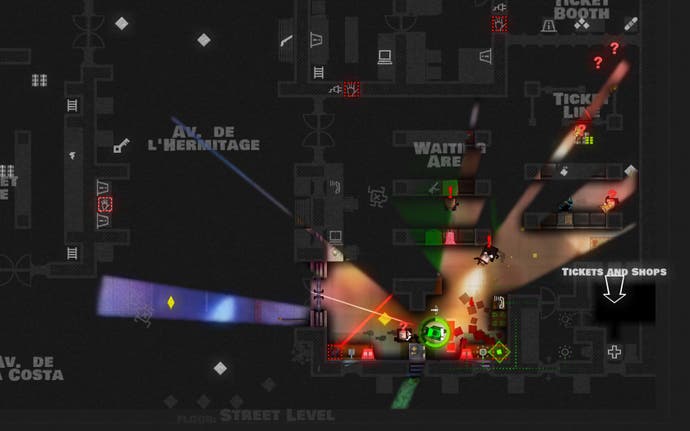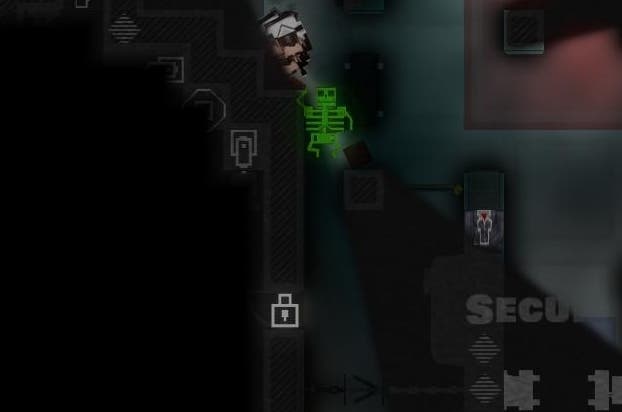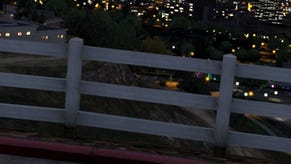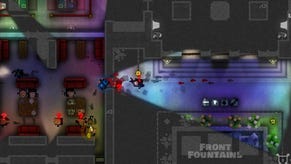Loud soft: In praise of Austin Wintory's dynamic Monaco soundtrack
Vaudeville violence.
Monaco: What's Yours is Mine is one of the most beautifully conceived games I've ever played. Every aspect of it seems to be the result of careful, considered planning. It's clever, creative, and endlessly surprising.
Monaco's a robbery game set in a location you'd really like to see picked clean, and it delivers big-budget heists and hectic escapes via the affordable medium of top-down maze classics like Pac-Man. Pocketwatch Games has kept the whole thing alive for the year following its release with judicious - and generous - free DLC, too, and as the campaigns have piled up the narrative has genuinely grown in depth. How rare is this: video game storytelling that leaves you confused in a good way? I won't spoil the intrigue for you here, but if you want to see what all the fuss is about, you can check out the game's forums where players are still trying to put the pieces back together.
Fin, the final DLC campaign, appeared at the start of April, and it's made me fall in love with Monaco all over again. More specifically, it's made me fall in love with Monaco's soundtrack, another ingenious piece of planning and implementation that truly comes alive in the very late game levels that Fin offers - because the very late game levels are so terrifyingly challenging.

What kind of music would you select for a stealthy action-adventure about deadly rogues robbing their way across the glitziest principality on Earth? Bloops and bleeps and shifting drum machines to match the hacking, the hiding, the nervy bursts of illicit action? Swing band classics performed by men with names like Deano and Frankie Baby to accentuate the champagne sparkle and the concealed menace? Both approaches would be blandly acceptable, I guess, but Monaco wisely looks elsewhere. Above all else, this is a game about scarpering, so it turns to the days of silent cinema - to the music hall - back when scarpering had been elevated to a fine art.
And Austin Wintory's vaudeville piano score turns out to be a perfect choice, from its opening bars which inevitably conjure images of sinister top-hatted desperados lashing victims to train tracks, to the sudden crescendos that erupt when you do something you really shouldn't have. The idea is that Monaco's a caper - a Keystone Cops affair. And, as with the Keystone Cops, the accompaniment comes from a lone performer, hammering away at a pleasantly out-of-tune piano, with no sheet music to help them and no idea of what's coming next. They haven't seen the movie that we're making for them. All they've got is instinct and a deep understanding of the genre.
For all its sparse, keyboardy charm, Monaco's soundtrack is a bona fide piece of technology, able to react to your on-screen behaviour and heighten any mood the player manages to create along the way. Sneak, and the music grows hesitant. Blow your cover and glissandos erupt. Then hands and fingers tumble over hands and fingers as the game struggles to keep up with your ad-libbing. Reach the next level of a stage - this is my favourite bit - and you get a burst of sudden finesse tying everything up neatly. For now.
Many games have had dynamic soundtracks, but the killer Monaco twist is to make that dynamism seem human. I can genuinely imagine the pianist sat somewhere in the darkness behind me as I inch through the game. I'm watching the screen, and the pianist's watching me. How stealthy! They're conserving their energy for my sudden mistakes and they're paring their playing back to almost nothing as I linger behind a plant pot in the lobby of a bank, desperately trying to work out what to do next.
Over the last few years - and work like Journey, which bagged him a Grammy nomination - Wintory's turned out to be a bit of a master at creating scores that genuinely collaborate with a game's design to create the perfect atmosphere and context for the action. Sparse yet somehow luxurious with it, I think Monaco's his best work yet.










